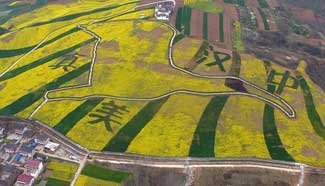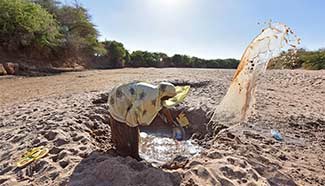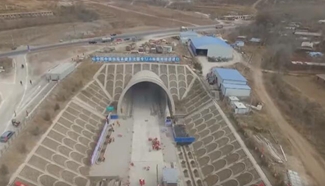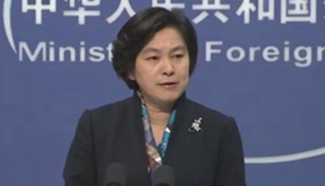ROME, March 21 (Xinhua) -- FAO marked UN's International Day of Forests on Tuesday by calling for a greener wood energy sector which holds a vast potential for reducing global greenhouse gas emissions and improving rural livelihoods.
Up to 7 percent of global greenhouse gas emissions caused by humans come from the production and use of fuelwood and charcoal. This happens largely due to unsustainable forest management and inefficient charcoal manufacture and fuelwood combustion, according to a new FAO report published on Tuesday.
Referring to this year's theme "Forests and Energy", FAO Director-General Jose Graziano da Silva noted that, for more than 2 billion people worldwide, wood fuel means a cooked meal, boiled water for safe drinking, and a warm dwelling.
"This is especially important for poor people in rural areas of developing countries, where wood is often the only energy source available," he said at the International Day of Forests ceremony in Rome.
However, he warned that much of the current production of wood fuel is unsustainable, contributing significantly to the degradation of forests and soils and the emission of greenhouse gases in the atmosphere.
"In many regions, the conversion to charcoal is often done using rudimentary and polluting methods," he said, urging countries to reverse these negative trends in wood energy production and use.
"We need, for instance, to adopt improved technologies for energy conversion," Graziano da Silva said, adding that FAO is participating in several programmes to deliver fuel-efficient stoves, especially for poor people in Latin America and Africa.
He said that ensuring access to affordable, reliable, sustainable and modern energy is one of the 17 Sustainable Development Goals and that it is " fundamental for addressing the impacts of climate change and eliminating extreme poverty and hunger".
In his opening remarks at the ceremony, President of Fiji Jioji Konousi Konrote called for more attention to scaling up the transfer of renewable energy technologies, particularly for forest biomass in order to ensure that developing countries are making use of these technologies and keep pace with growing energy demands in a sustainable manner.
"Only then can developing countries reduce the use of fossil fuel and do their part in contributing to a better cleaner environment by reducing their levels of carbon emissions," Konrote said.
"It is vital that everyone from the public and private sectors, academia, engineers, researchers, policy-makers, planners and funding institutions coordinate their efforts and work with each other to increase the contribution of forests in the mix of global renewable energy supplies," he added.
The government of Fiji is poised to assume the presidency of the next Conference of Parties of the UN Climate Agreement that will take place in in Bonn, Germany, in November. Unsustainable charcoal production among drivers of climate change.
More than 2.4 billion people -- about one-third of the world's population -- still rely on the traditional use of wood fuel for cooking, and many small enterprises use fuelwood and charcoal as the main energy carriers for various purposes such as baking, tea processing and brickmaking.
Of all the wood used as fuel worldwide, about 17 percent is converted to charcoal, according to the report.
When charcoal is produced, using inefficient technologies and unsustainable resources, the emission of greenhouse gas can be as high as 9 kg carbon dioxide equivalent per 1 kg charcoal produced.
The report highlights that in the absence of realistic and renewable alternatives to charcoal in the near future, in particular, in sub-Saharan Africa, Southeast Asia and South America, greening the charcoal value chain and applying sustainable forest management practices are essential for mitigating climate change while maintaining the access of households to renewable energy.












